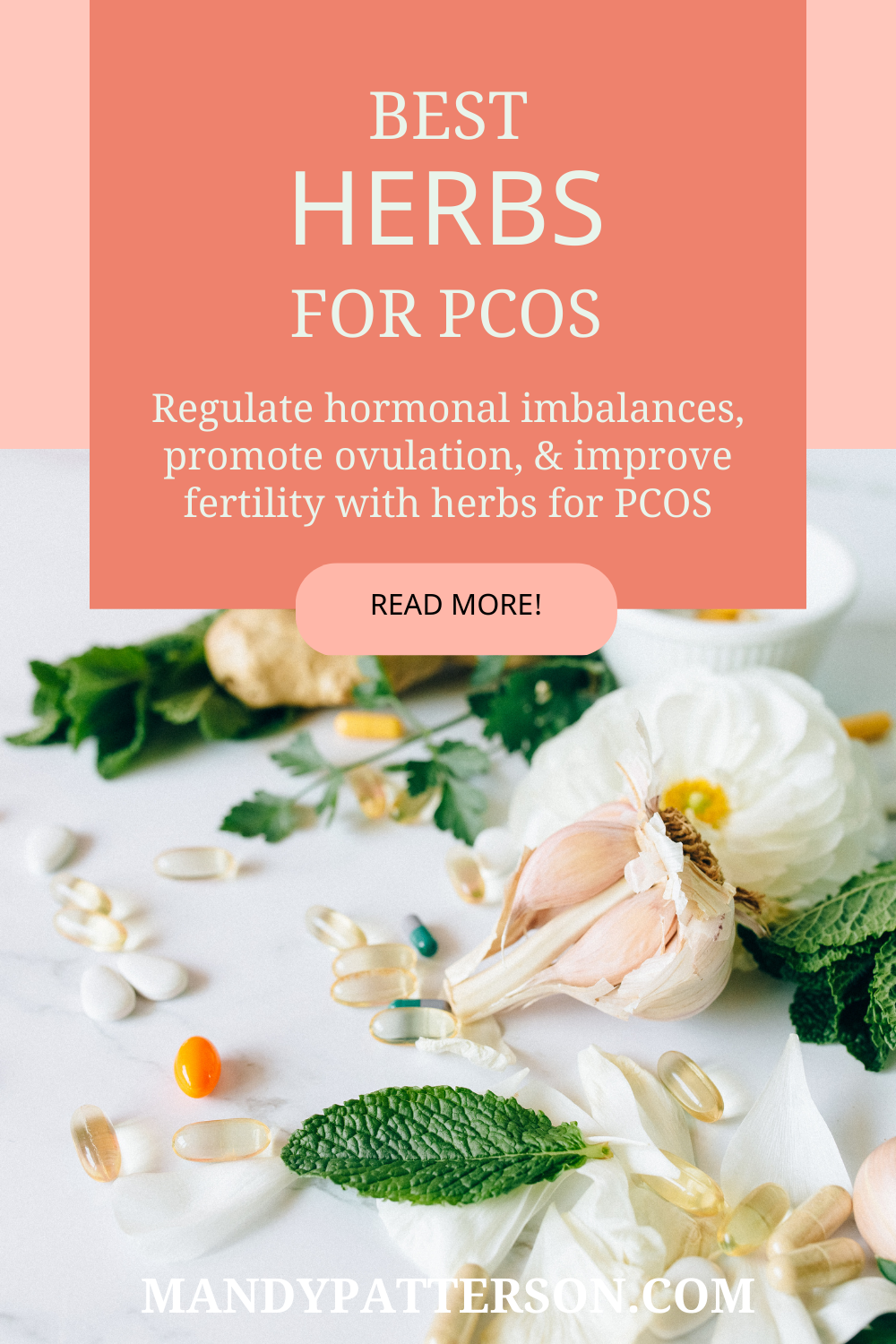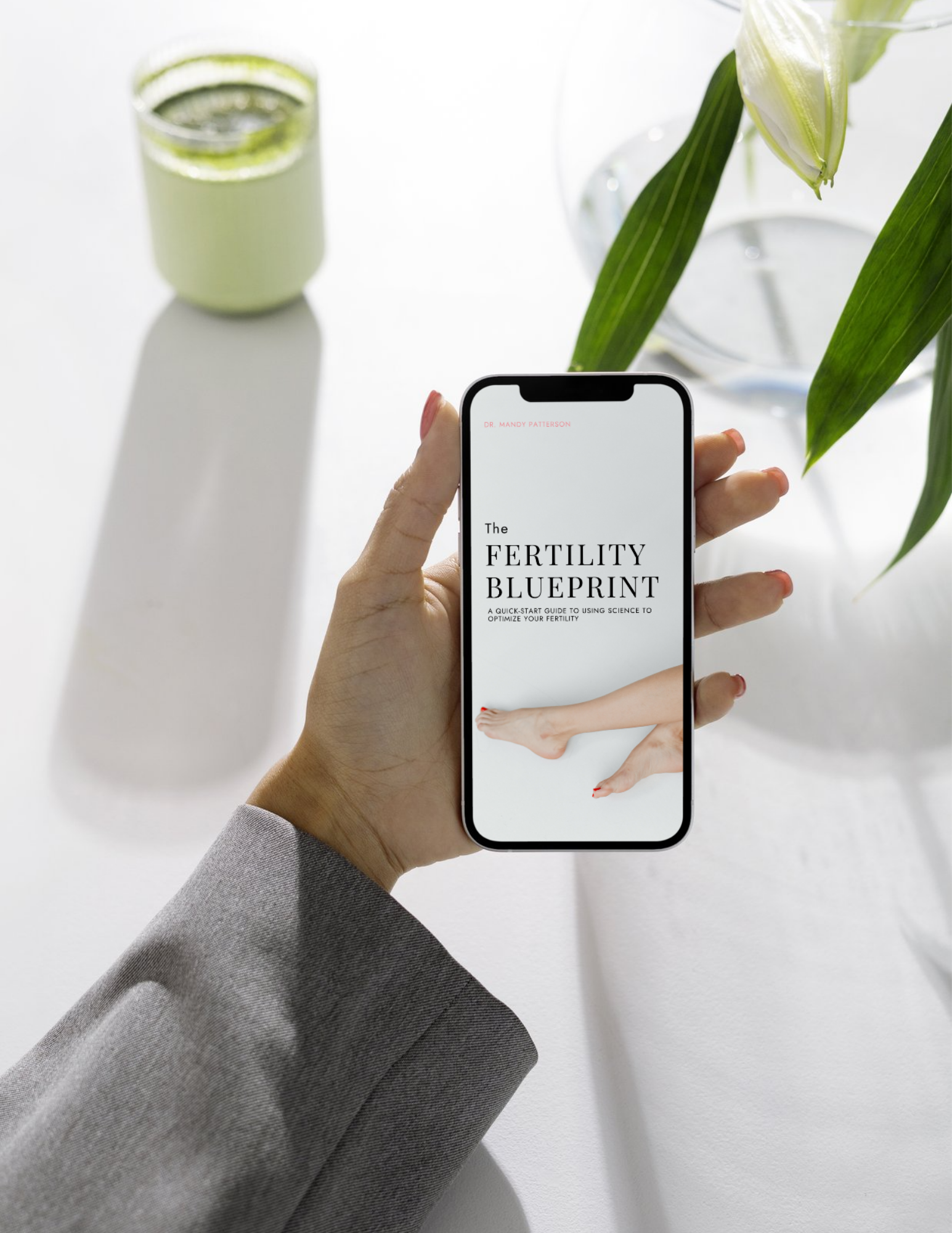Did you know that Polycystic ovarian syndrome (PCOS) is one of the most common causes of female infertility? That’s right! What’s more, PCOS symptoms vary for each individual, making it a unique condition to treat. However, in all cases, PCOS can interfere with a woman’s ability to get pregnant.
Getting to the root cause of your PCOS is critical in order to achieve the healing you desire. In addition to identifying the root cause, there are supplements and herbs that can help regulate hormonal imbalances, promote ovulation, and improve fertility in women with PCOS.
This article will cover the best herbs for PCOS!
What is PCOS?
PCOS affects up to one in five young women and often leads to fertility issues. It is one of the most common endocrine (hormonal) conditions affecting reproductive-aged females. Insulin resistance, hormonal imbalances, and metabolic abnormalities are all involved in PCOS. They are also all factors that significantly increase the risk of infertility.
In terms of diagnosing PCOS, there are two sets of criteria:
- According to the 2003 Rotterdam criteria, a female must present with at least two symptoms: hyperandrogenism (too much testosterone), irregular menstruation, or polycystic ovaries.
- According to the 2009 Androgen Excess & PCOS Society criteria, a female must present with hyperandrogenism AND either irregular menstruation or polycystic ovaries.
The more updated criteria recognize that polycystic ovaries do not have to be present for a woman to suffer from PCOS.
Symptoms of PCOS look like the following:
- Insulin resistance
- Increased risk of diabetes
- Weight gain
- Elevated cholesterol
- Fatty liver
- Excess hair growth on the face, stomach, and back (Hirsutism)
- Loss of hair on the top of the scalp (Alopecia)
- Anxiety
- Depression
- Acne
- Anovulation (or the absence of ovulation)
- Difficulty conceiving
- Increased risk of pregnancy complications
Does PCOS Affect Fertility?
The short answer is yes, PCOS does affect fertility. Let’s get into a little more of the science behind how this hormonal condition can adversely impact a woman’s fertility.
It starts with insulin resistance. Approximately 70% of women with PCOS have insulin resistance. This imbalance occurs when the cells in the body resist or ignore the signal from insulin, a hormone that controls your body’s glucose or blood sugar level.
Note here that glucose comes primarily from your diet in the form of carbohydrates. As a result, your body produces excess insulin levels to move glucose into the cell. When your body produces this extra insulin, it leads to excess insulin AND glucose in the bloodstream.
How does this affect fertility?
Excess insulin – when there is too much insulin in your bloodstream, it can cause your ovaries to produce more androgen hormones like testosterone. Overproduction of testosterone can impair egg development and lead to anovulation or the failure to release an egg from the ovary. As you probably learned in high school biology, an egg is required for a successful pregnancy.
Excess glucose – When there is too much glucose, significant issues such as weight gain, diabetes, and non-alcoholic fatty liver disease can occur. All of these complications further affect fertility outcomes.
While PCOS is the leading cause of anovulatory infertility, or infertility due to the lack of ovulation, dietary and lifestyle changes, along with fertility supplements and herbs for PCOS, can aid in bringing hormones back into balance and increase the chances of a successful pregnancy.
PCOS Management
The first step for a woman to begin healing from PCOS is to establish a healthy diet and exercise routine.
Eating whole foods high in fiber and low in refined carbohydrates and exercising are important for most women with PCOS. Lifestyle changes like these can lead to balanced hormones in women with PCOS and improved fertility outcomes.
After you have begun to establish the necessary lifestyle changes, the second step includes the use of supplements and herbs, which can help expedite the hormone-healing process.
Ultimately, PCOS fertility management aims to reverse the symptoms of the condition, establish a regular menstrual pattern, and promote optimal egg quality.
Best Herbs for PCOS
Incorporating everyday herbs and spices into your diet can immensely impact your symptoms of PCOS. Not to mention, herbs for PCOS are a safe and nourishing option to support ovarian function, endocrine feedback loops, thyroid function, and blood sugar regulation and metabolism.
Here are the following best herbs for PCOS:
Shatavari
Researchers have speculated that Shatavari can help overcome PCOS by working to normalize the function of the ovaries.
In fact, a clinical trial involving 40 women showed that Shatavari (along with a few other Ayurvedic herbs) helped reduce PCOS symptoms by reducing excessive body hair and helping maintain a regular menstrual cycle.
Vitex
Also known as Chaste Berry, Vitex, is typically used for alleviating breast pain, PMS, and PMDD. In terms of PCOS, a review of eight studies were evaluated that investigated the gonadotropic (meaning affecting the gonads) hormonal effects of this herb.
Though it had no effects on LH or FSH levels, it appeared to improve pregnancy rates, probably due to its ability to lower prolactin levels. Too high prolactin levels are linked to infertility, irregular periods, and early menopause.
Vitex is also a natural anti-inflammatory that may help reduce the inflammation associated with PCOS as well as the associated symptoms.
Black Cohosh
Cimicifuga racemosa, also known as black cohosh, may have fertility benefits for women with PCOS.
One study found that the effect of black cohosh on LH and the LH/FSH ratio indicates that black cohosh induces the hypothalamus to reduce the release of gonadotropin-releasing hormone (GnRH). To explain, GnRH causes the pituitary gland in the brain to make and secrete the hormones luteinizing hormone (LH) and follicle-stimulating hormone (FSH).
A reduction in LH in women with PCOS is associated with better ovulation and implantation rates.
Also, the black cohosh group had significantly greater progesterone levels and endometrial thickness, supporting fertility and implantation.
Green Tea
Green tea is made from Camellia sinensis leaves and buds that have not undergone the same withering process used to make black tea. This makes green tea one of the least processed types of tea.
One study on women with PCOS found that green tea consumption led to weight loss, decreased fasting insulin, and a decrease in the level of free testosterone.
Though the study was relatively small, as a double-blind, randomized clinical trial, it showed promising results. Researchers found there were measurable differences in the experimental groups after 3 months of consuming green tea.
Given the low cost of this herb for PCOS, as well as its accessibility, combined with its positive health implications, green tea is a great option for those who are interested in exploring its benefits for PCOS.
Turmeric
Turmeric comes from a flowering plant called Curcuma longa and is part of the ginger family. It is a traditional Indian spice known for its vibrant yellow color in cooking.
The active ingredient in turmeric that offers many health benefits is curcumin; it has powerful anti-inflammatory effects and is known as a strong antioxidant.
One study showed that turmeric improves ovulation in women with PCOS. In addition, another (double-blind, randomized, and placebo-controlled) clinical trial showed that a 12-week administration of curcumin to women who had PCOS had beneficial effects on body weight and glycemic control (meaning blood sugar levels).
Ultimately, along with green tea, this is one of the best herbs for PCOS because it is so easy to incorporate into your daily life. Add this spice to your favorite dishes for an Indian-inspired flavor or make a turmeric latte and enjoy sipping on this throughout the afternoon!
Work with a Fertility Coach
If you are interested in overcoming your symptoms and getting pregnant with PCOS, I recommend consulting with a functional medicine practitioner. My coaching program takes a functional medicine approach to PCOS and fertility. As a Doctor of Naturopathy, Certified Holistic Health Coach, and Fertility Coach, I’m dedicated to helping get to the root cause of your PCOS and recommend the best herbs for PCOS based on your unique symptoms and lab findings. Learn more here!


















